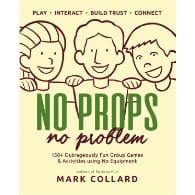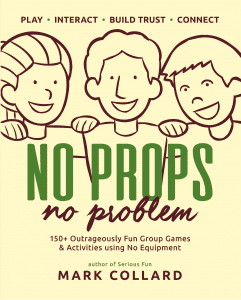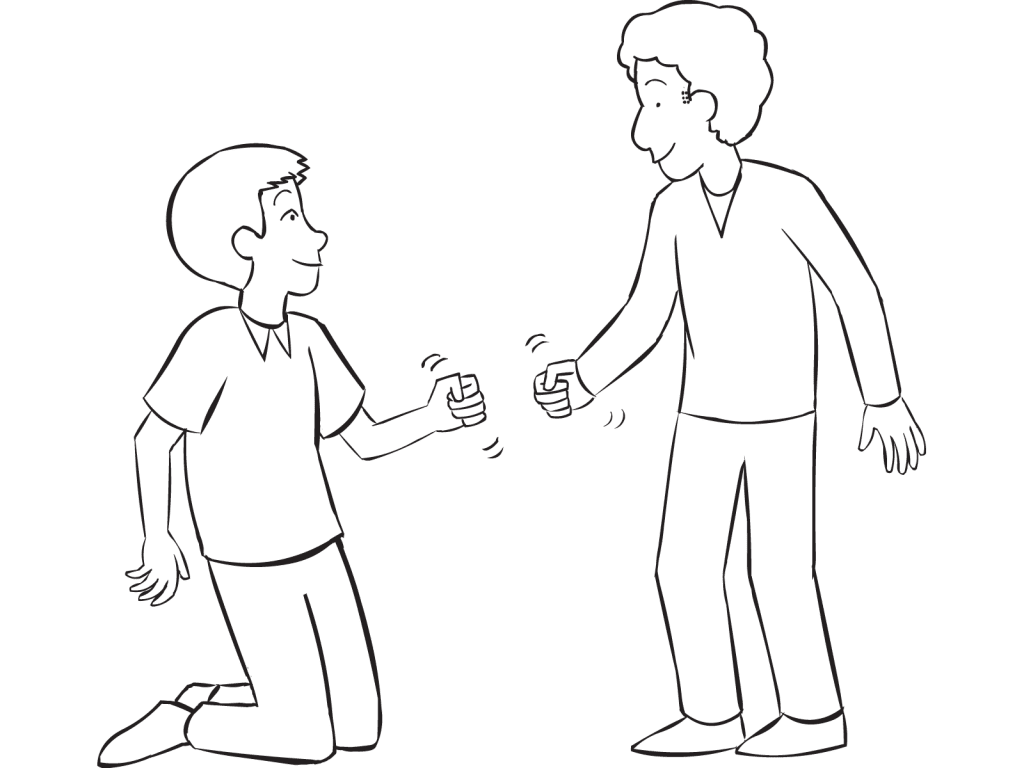Save to Playlist
Step-by-Step Instructions
Video Tutorial Premium
How To Play Narrative Premium
Practical Leadership Tips Premium
Social-Emotional Learning Premium
Health & Wellness Programming Premium
Popular Variations Premium
You Might Also Like... Premium
Useful Framing Ideas Premium
Reflection Tips & Strategies Premium
Source Premium

No Props No Problem
Brand NEW book featuring 150+ outrageously fun group games & activities. Scan QR codes to connect to tons of digital content including video tutorials.
Add to Cart
NEW – No Props No Problem
The best-selling book featuring 150+ outrageously fun group games & activities. Scan QR codes to access exclusive digital content including video tutorials.

Free Ice-Breakers & Group Games
Ten of the best no-prop, interactive ‘get-to-know-you’ games & activities. 100% fun, your group will love ’em. Our most successful giveaway, 10,000+ downloads so far…
Top Ten Icebreakers & Group Games
Download our free 28-page ebook jam-packed with outrageously fun activity ideas.
Just one more question:
I am interested in…
Rock, Paper, Scissors: Five Lives
Share this with friends and colleagues.
Choose a plan that’s right for you
We offer a range of membership plans with no surprises.
Click an option below & discover our simple pricing.

Individual
Click here if you’re a:
- Teacher
- Corporate trainer
- Outdoor educator
- Camp leader
- Youth leader
- Conference organiser
- Therapist/counsellor
Membership Plans

Enterprise
Click here if you represent a:
- School
- Corporation
- Community-based Organisation
Explore plans for
10, 50, 200 or more
potential users
Membership Plans






Practical Leadership Tips
“Remind your group that with every round played, the winner goes up a level, and the loser goes down a level. It’s not a simple matter of only having five lives (despite the name of the game.)”
For our Youth Group I call this game Scissors, Paper, Rock: Five Levels (rather than Five Lives) to avoid that confusion.
🙂
Fair enough too, Sara. You make a good point, it’s just that this is what I’ve always known this game to be called. Thanks for helping others here 🙂